Note from Clark Merrefield, senior editor for economics and legal systems at The Journalist’s Resource:
A couple of weeks ago, my son, Theodore, came home with a social studies assignment from his first grade class. He goes to public school in New York. The students were assigned to learn and write about a “community helper” — suggestions included a police officer, nurse, firefighter and other civic professions.
Being in journalism, I have talked with him about what a news reporter does. For his project, Theo was interested in doing something having to do with the news media, but he wasn’t sure where to start. I said, “What if you interviewed a local reporter, to find out what they do?” He asked what an interview was, and I explained it’s when you talk to someone to find out information about something they know a lot about.
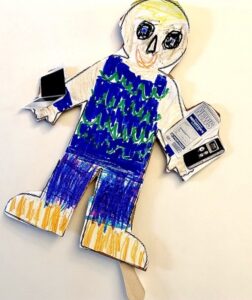
He said, “OK! I think I could do that!”
As a reader of the Queens Daily Eagle, one of our local newspapers, I reached out to their reporter, Ryan Schwach, to see if he would be up for a grilling from a first grader.
Within a few hours, Ryan got back to me and graciously agreed. Then, to come up with questions, Theo and I talked about a few things he might like to know from Ryan.
(Disclosure: The last question Theo asked, on whether Ryan wanted to add any final thoughts, was my idea. I find this to be a useful closing question, as it gives a source some agency to mention anything the reporter didn’t think to ask.)
A few days later I set up a Zoom call and Theo conducted his first journalistic interview on May 1, 2023.
The transcript that follows of the conversation between Theo and Ryan has been lightly edited for length and clarity. It’s a reminder of the critical role local journalists play in informing communities large and small through breaking news, investigations and features on elected officials, organizations and neighbors that matter to their readers.
—
Theodore Merrefield: What does a journalist do?
Ryan Schwach: We inform people what’s going on in their communities. What I do as a local reporter is, I tell people what’s going on in their neighborhoods, and the things that matter to them. That could be anything from stuff that’s happening with the schools, stuff that’s happening with hospitals. It could be stuff that’s related to the police, it could be stuff their politicians are doing, the people who we vote for, it could be what they’re doing.
And we get to tell stories about people. We can find fun and interesting people, and we get to tell stories about them and tell people about their neighbors.
TM: How do you find stuff out?
RS: It depends on the story. Sometimes it’s just what I see. I’ve lived in Queens my whole life and I’ve been writing about Queens for about four years, and I spent a little while going all over the city. So sometimes my boss, my editor, will say, ‘Hey, I have this story, write this.’ Sometimes it’s stuff that I see, like I’ll notice something and go, ‘That’s weird. Why is it like that?’ So I’ll do research and I’ll talk to people and I’ll try to figure out what’s going on.
Sometimes, more often than not, we get these things called press releases, which a business or government people or different organizations will send me. This is what’s happening with something I’m writing about today — we got a report sent to us by a group that studies traffic accidents. They sent me a report about all the traffic accidents that have happened in the city. That wasn’t something necessarily that I found, it was something that was given to me. But then I find other information to make that more interesting.
A lot of it is taking stuff that happens city and statewide and localizing it. The Queens Daily Eagle has a specific angle toward the Queens judicial community and what goes on in the courts. That’s sort of our niche. That’s where our paper, the physical paper runs — in the court buildings.
TM: What is your favorite part of your job and what is the hardest part of your job?
RS: Those are two very good questions. My favorite part is all of the different things and people I get to experience with this job. The biggest thing that a journalist does, other than writing, is talking to people. I talk to different people on a daily basis. You probably know this: There’s so many different types of people who live in Queens from all different countries and they speak a bunch of different languages. I get to talk to all of those different communities.
I get to talk to some really cool, interesting people, people who really care about their community, people who have done really cool stuff. And occasionally, people who have done really bad stuff and I have to get them to talk about it. I think that’s the most fun, I get to experience a bunch of things that most jobs just don’t get to experience because I’m doing all these different things. I’ll talk to a police officer or a firefighter. I’ll talk to teachers. I’ll talk to really cool, interesting people from all over the world who have different ideas and I get to tell those stories.
The hardest part — I’ve been lucky, I have had some good editors in my life. My editor right now is fantastic, at the Eagle. Here’s the answer for me: It’s deadlines. We have a lot to do, and we have a very short amount of time to do it. I work for a daily newspaper, which means we do a newspaper every day, except for the weekends. Monday to Friday, we’re putting out a newspaper.
I was writing a story about a bunch of doctors in Queens who are very upset with how much they’re getting paid and how much they’re working. They want to strike. They want to not work for a couple of days as a show that they’re serious. And I wrote this whole story, this 2,000-word story about them getting ready to strike. And then, about 20 minutes ago, I got a phone call from one of them, saying, ‘Hey, we are striking on these dates.’ So I had to rewrite a bunch of things and Tweet something. That’s probably the most challenging thing, is doing it quickly and adapting.
TM: Why did you want to be a journalist?
RS: My grandfather did it, my grandfather was a reporter where I live in Rockaway [in Queens]. I was born and raised in Rockaway. Journalism and writing was something that was always very important in my family. My parents both worked on school newspapers, and my dad was always pushing me to read the news and pay attention when I was a kid and know what was going on in the world.
And I like telling stories. I like telling other people’s stories, that’s a lot of fun. I think that’s why a lot of people get into journalism, so they can tell stories, especially when those stories haven’t been told a lot — communities where people felt like they weren’t getting their voices heard.
I think probably more deep down the reason is I just really like knowing things before other people do. This is something that professors and editors have told me, that the biggest thing you have to be, to be a journalist, is curious. You just have to want to ask a ton of questions about different things.
TM: What is your favorite story you have ever done?
RS: I’ve gotten to do some serious things, actually what is called breaking news, which means it’s happening right now. But I think my favorite is when I was working for The Daily News, which is a newspaper in the city, I was covering another story and I randomly came across these guys in Springfield Gardens. They were all adults, guys in their thirties, and they had these little, very expensive remote control cars that went super fast — like 90 or 100 miles an hour. And I was just covering this other story that didn’t pan out. I was walking around Springfield Gardens like, ‘All right, guess I’ll get on the bus and go home.’ And I saw these guys and I’m like, ‘This looks interesting.’
So I walk over and I start talking to them. It turns out for a lot of them this was their hobby, they spend thousands of dollars making these cars super cool, and fast. They paint them all cool colors and give them names and race them on weekends and they have these leagues and they travel around to other states to go race these cars. I just spent the afternoon there, I didn’t plan it.
That was the first big story I ever wrote for something that wasn’t super local. That was the first time I had a two-page spread in a daily newspaper. That was a lot of fun because I like telling stories about people’s hobbies and interests that nobody would really notice. If I could afford one of what they had I would probably do it too.
TM: I have three remote control cars.
RS: Do you?
TM: Yeah.
RS: I had them when I was a kid. I never had a really nice one, I had little ones. I had a helicopter, I liked that very much. I like the flying ones.
TM: I only have ones that go on the ground. They probably go 10 [miles an hour].
RS: That’s fast, that’s pretty good.
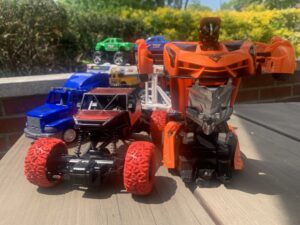
TM: I have one that transforms, from a car into a robot.
RS: Like a Transformer?
TM: Yeah.
RS: I had one of those when I was a kid too. I had tons of Transformers.
TM: And the transformer one has autopilot.
RS: As in, it goes by itself?
TM: Yeah, if I press the button.
RS: That’s super cool.
[Edit: Dad nudges Theo to ask his next question.]
TM: Why is journalism important to our community?
RS: I think it’s important that people know what goes on around them, because there are people who make decisions in government, and we want to make sure that they’re doing the right thing. We want to make sure that our police officers and politicians, we want to make sure they’re doing the right thing. And it’s important that we have people who are making sure they’re doing that, to the best extent we can.
TM: Is there anything that you want to add that we didn’t talk about?
RS: The last thing I’ll say, since it ties into what you have to do for your assignment, is that local reporting, especially in a place like Queens, can be very important. It’s a big job, particularly because there’s a lot of people in Queens. It’s the biggest borough, and it’s good because there’s actually a lot of Queens newspapers. There’s us, there’s the Queens Chronicle, the Queens Courier. There’s a bunch of them that just cover Queens and I think that’s really good because people in Queens are a little spoiled when it comes to being able to know what’s going on.
TM: Thank you!
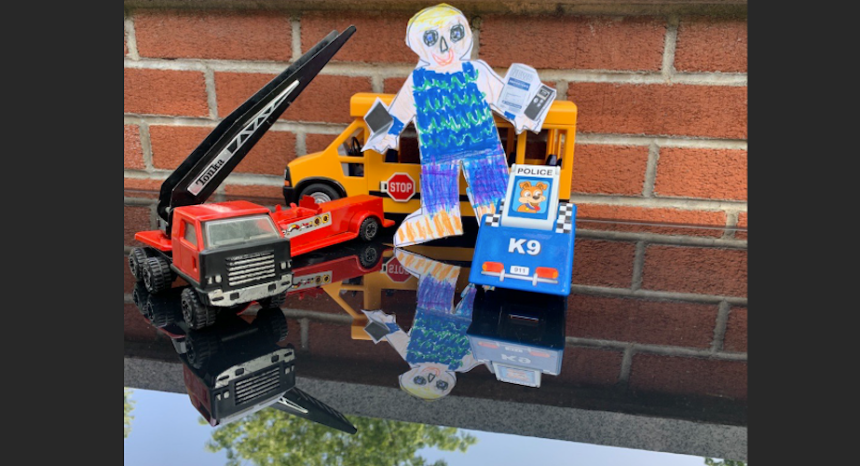

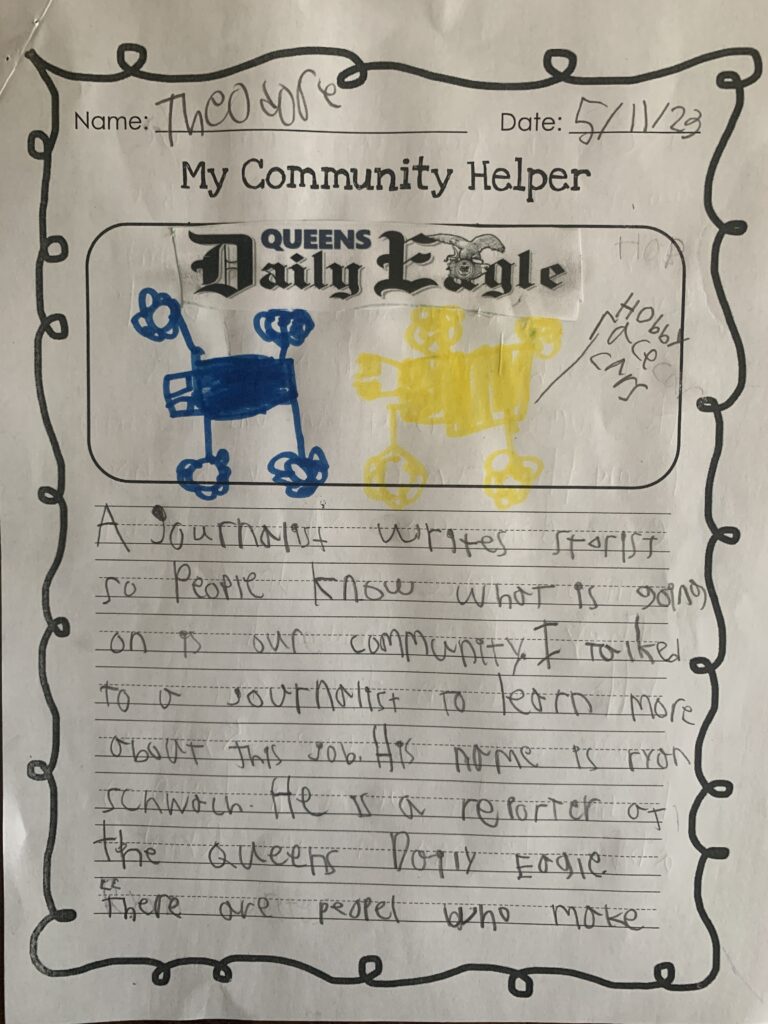
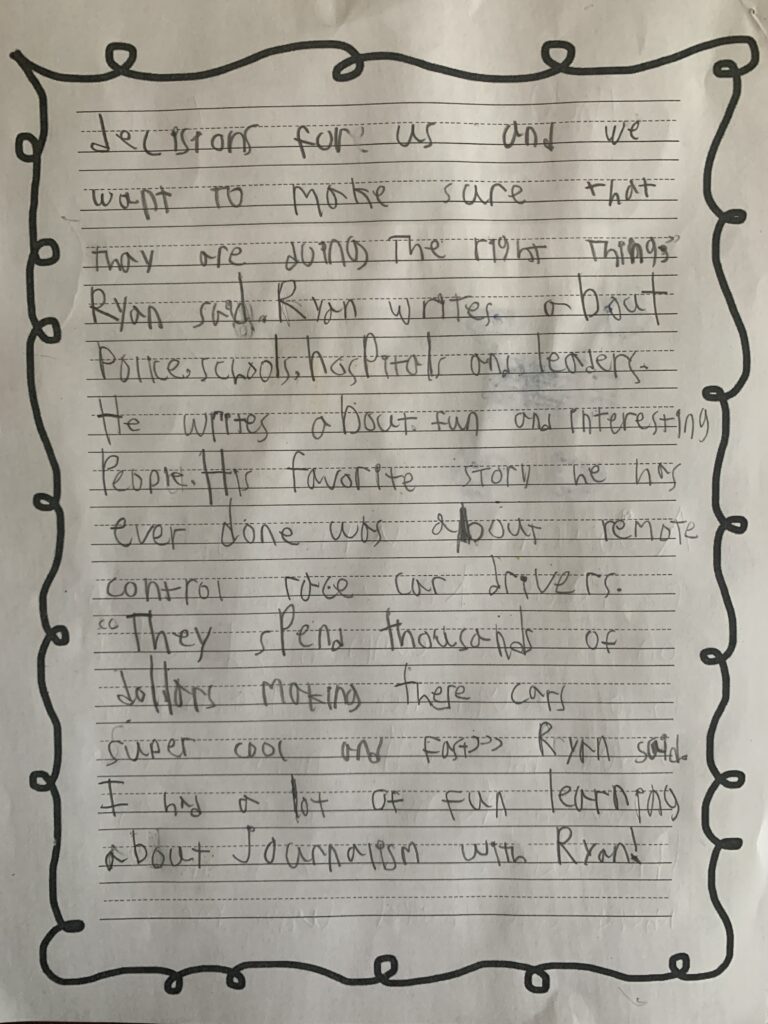
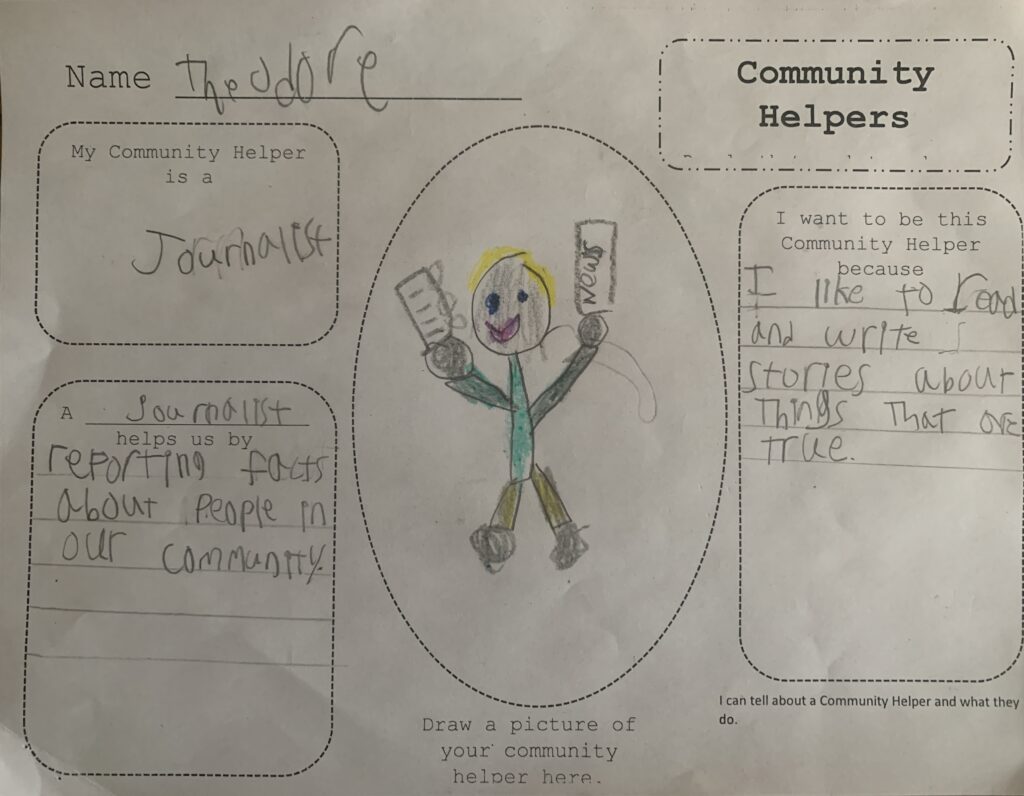
Expert Commentary